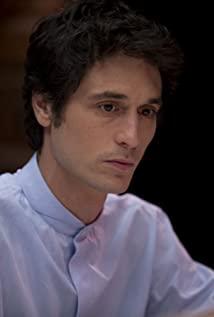English Title: Declaration of War
Original Title: La guerre est déclarée
Year: 2011
Country: France
Language: French
Genre: Drama
Director: Valérie Donzelli
Screenwriters: Valérie Donzelli, Jérémie Elkaïm
Cinematography: Sébastien Buchmann
Editing: Pauline Gaillard
Cast:
Valérie Donzelli
Jérémie Elkaïm
César Desseix
Brigitte Sy
Elina Löwensohn
Béatrice de Staël
Anne Le Ny
Frédéric Pierrot
Michèle Moretti
Philippe Laudenbach
Bastien Bouillon
Elisabeth Bion
Katia Lewkowicz
Gabriel Elkaïm
Rating: 7.6/10
English Title: Custody
Original Title: Jusqu'à la garde
Year: 2017
Country: France
Language: French
Genre: Drama
Director/Screenwriter: Xavier Legrand
Cinematography: Nathalie Durand
Editing: Yorgos Lamprinos
Cast:
Denis Ménochet
Léa Drucker
Thomas Gioria
Mathilde Auneveux
Florence Janas
Sophie Pincemaille
Saadia Bentaïeb
Emilie Incerti-Formentini
Coralie Russier
Martine Vandeville
Jean-Marie Winling
Mathieu Saikaly
Martine Schambacher
Jean-Claude Leguay
Jérome Care-Aulanier
Jenny Bellay
Julien Lucas
Rating: 8.1/10
Two French films pluckily wrestle with familial tribulations, actress-turned-director Valérie Donzelli's second feature DECLARATION OF WAR focuses on a pair of parents whose child is diagnosed with brain tumor whereas CUSTODY, Xavier Legrand's feature debut, covers a custody case and the ugly truth of domesticate violence with spectacular restraint.
Both topics can reverberate universally, but Donzelli and Legrand have very different, even disparate approaches to press home their impact. DOW is inspired by the real story of Gabriel Elkaïm, the son of Donzelli and her ex-partner, actor Jérémie Elkaïm, who suffers a major brain disease as an infant. In the film, Dozelli and Elkaïm play a young couple named Juliette and Romeo (how fateful their destiny is set in store for them!), together they have a baby boy Adam (Desseix), but their domestic bliss is evanescent. When Adam is 18 months old, he is discovered having a brain tumor and after an operation, the cancer proves to be malignant, therefore Romeo and Juliette expend next few years living in the hospital with Adam, who needs to be treated medically on a quotidian basis.
If the premise looks dreary and distressful, that's the last thing Donzelli tries to evoke in her film, which is why, she over-dramatizes the most heartbreaking moments, viz. when the family members receive the bad tidings, to dull the edge of its pathos (their reactions are explosive rather than implosive), also by introducing Adam at the age of 8 (played by Gabriel himself) right out of the box, audience is reassured that all will be well. DOW plays up to the solidarity between Romeo and Juliette, and among their extended families throughout, in the meantime, it is also crucial to point up that even in the face of unforgiving adversity, people needs to offload their pressure and kick up their heels once in a while, an “open kiss” party could just do the trick, Donzelli and co. practice what they preach, seeing everything through rose-colored glasses,it is the Gallic spirit billowing out of the most arduous ordeal for a brace of young parents, a sentimental French chanson can just bob up at the drop of a hat, traversing different places to form a duet of the heart.
Holding on to dearly its cinema-vérité fashion, which tallies with its authentic take on the clinical but professional doctors and hospital staff, DOW also flourishes on the organic, mutually counterpoised performances from Donzelli and Elkaïm, who are in perfect sync in their two- shots and their lingering affections fro each other makes a strong case that true love should never be possessive.
Yes “possessiveness” is the bane in CUSTODY, a sequel follows Legrand's Oscar-nominated short film JUST BEFORE LOSING EVERYTHING (2013). But for those who haven't seen the short, the film astutely opens in a custody court hearing, and allows audience be the judge, without any background info, solely pursuant to the court proceedings (chiefly through the two lawyers' statements), whom shall we root for? Antoine (Ménochet), a father who seeks shared custody of his 11-year-old son Julien (Gioria), or Miriam (Drucker), Julien's mother and Antoine's ex-wife, who, one day, simply whisked away Julien and his elder sister Joséphine (Auneveux) from Antoine (JUST BEFORE LOSING EVERYTHING details what happens in that specific day), and accuses him of being violent. Even with Julien's letter,in which he indubitably states that he doesn't want to stay with Antoine, can we permit the father a second chance? I think most of us would concur with the judge's verdict. That is exactly what Legrand lays bare, in the dearth of testimony , the law is more likely to fail to protect the victim of domestic abuse.
If Miriam's obvious lack of awareness of collecting physical evidence (in the short film, we can see bruises all over her body) is a necessary plot device to veer the narrative into that particular grueling direction, CUSTODY compensates by generating the thrill and tension by contemplating danger in extreme propinquity when Julien is obligated to spend time with Antoine, and it soon dawns on audience that what a monster the seemingly benevolent father is. Although he never lays a finger on Julien, but the sheer emotional abuse he unleashes on his prepubescent son is so staggering and deeply unnerving, praise be Gioria, a wunderkind who could withhold such a fusillade of hectoring, coaxing and threatening, then responses with utterly stunning reaction shots, so much so that viewers might seriously concern about his traumatized mentality.
Ménochet inhabits the revolting character with sonorous precision, and his crocodile tears attest that procuring for sympathy is a possessive abuser's common shenanigans, a means to continue this vicious circle. Drucker has a more sidelined presence as Miriam in the first half, but takes the central stage when the situation deteriorates, she becomes more and more aware of the forthcoming danger, her steadfast gaze and upright posture eclipse her petite figure, especially in the climax, sheltering a startled child, she trembles, wheezes but also recollects herself in her worst nightmare , like the final girl in a horror movie, only we can vicariously feel her fear, her desperation, along with Gioria's, they're visceral to the core,what a searing masterpiece of acting and Legrand's phlegmatic control of all the actions totally obliterates his greenness.
Both films are big players in the César Awards, DOW reaps 6 nominations and CUSTODY is the top honor recipient, including a triumphant victory for Drucker and Legrand's script. The former is a box office success while the latter is a critical darling, together they represent the top-tier of filmmaking which discreetly probes into the complicated dynamism among a nuclear family unit, two sides of a coin, one life-affirming, one cautionary, both are the bread of life we cannot get enough of.
referential entries: Joachim Lafosse's OUR CHILDREN (2012, 6.7/10); Jacques Audiard's DHEEPAN (2015, 7.1/10); Léonor Serraille's MONTPARNASSE BIENVENUE (2017, 7.4/10).
View more about Declaration of War reviews









